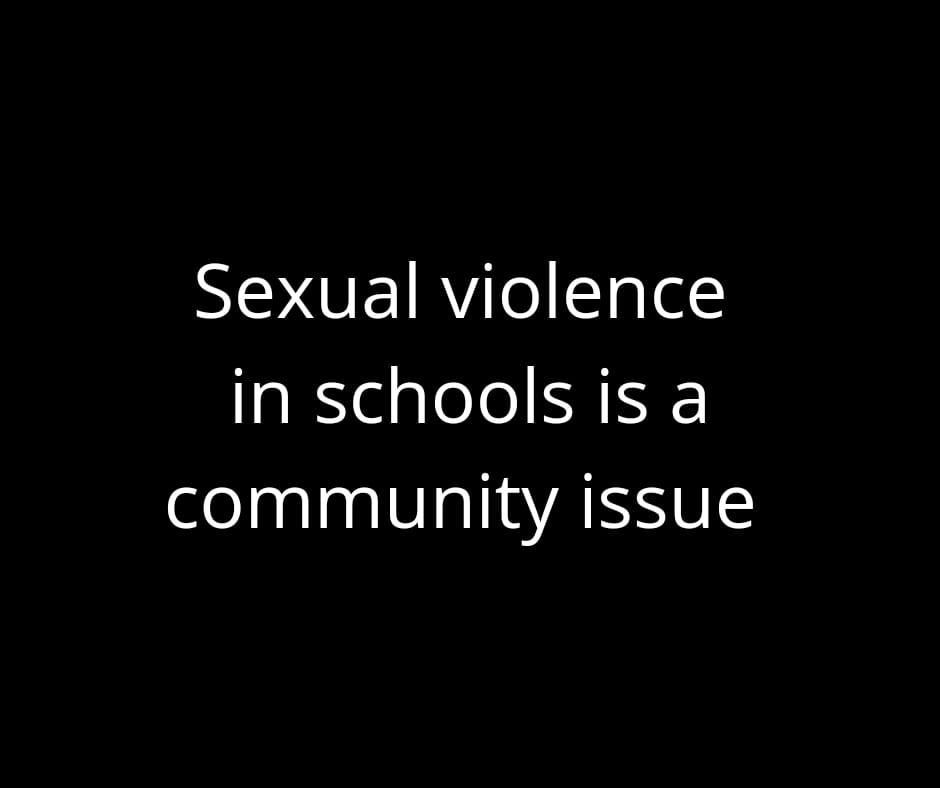By ROD AMNER AND NYX MCLEAN, Grocott’s Mail editors
Since we published the anonymous article last week in which a member of our community spoke about their abuse at school, we have received a sustained response from community members on the topic of sexual violence and abuse in schools.
This week we are publishing several articles, one of which is another anonymous letter from a survivor of sexual abuse at school. This person flagged the need to expand discussions to identify signs of abuse in young people. We also received an article from a school psychologist, Kaitlin Yendall, in which she challenges us not to look away and provides practical steps for addressing sexual violence.
Meanwhile, there were protests at Rhodes University this week, as a survivor spoke out about her abuse. The use of social media to call attention to sexual violence has been top of mind among the editors, prompting us to approach Prof Lubaale to advise us on the implications of naming and shaming alleged perpetrators online. You find this critical reflection in this week’s edition.
Milanda Coetzer, formerly with SAPS, drew our attention in a comment on Facebook to the need to report instances of sexual violence. We asked her for a more detailed discussion of this and how to report sexual offences in Makhanda.
As editors, we attended a meeting of the Circle of Unity’s Education Cluster on Wednesday, 17 November, to discuss a way forward to address sexual violence in schools. The committed participants spoke to the need to address sexual violence immediately, meaningfully, and sustainably. They were adamant the issue should not be allowed to fall away once this moment passes.
They suggested a review of policies, procedures, and practices around teachers’ recruitment and the development of teachers’ professional conduct. Reporting structures were also discussed, with those in attendance speaking to the need for a survivor-centred reporting mechanism that is simple and safe and protects the child’s identity.
While sexual violence in our schools is overwhelming and seems as if there is no end in sight as more and more survivors come forward, we believe there is hope in our community’s response. It is evident in the contributions this week that we are thinking as a community about how to address sexual violence, identify the signs, report it, and keep schools safe.
But we mustn’t treat this as a moment, viewing violence as events and not as a result of cultures or spaces within schools and our community that has made this possible.
We need to think about how perpetrators of violence target children, how teachers abuse power, and how cultures of silence emerge around this abuse. We need to think about what it means for schools to shed light on abuse, to hold themselves accountable as they face the gruesome truth hidden – and now emerging – in most schools.
If we view this as a community issue that we can all work towards addressing, we can hopefully shift the weight of attention off schools so that they don’t choose between their reputation and a pupil’s life.
Schools have a duty of care, bestowed upon them by the parents and guardians of the children of Makhanda – and the prioritisation of children’s safety speaks volumes about the school’s character.
But, ultimately, sexual violence in schools needs to be understood as a community issue that the community can solve.


